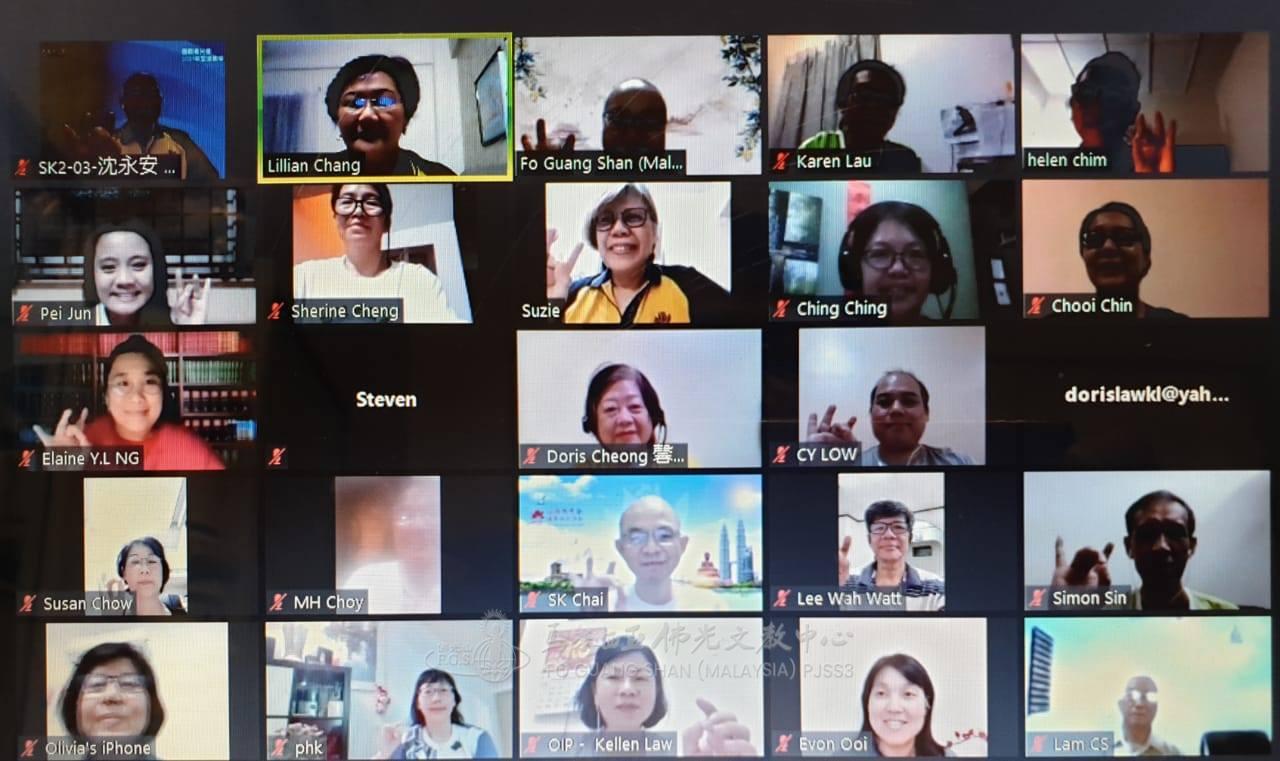Topic: 04/10/2021 Buddha-Dharma: Pure and Simple — Four Advices from Four Sutras
A total of 32 participants attended this reading session facilitated by Sister Lillian Chang.
In this article, Venerable Master Hsing Yun particularly extracted four advices from four sutras for us to use as reference for interpersonal and social interactions that are worthy of reflection and practice.
1. Never forget one’s initial aspirations (Avatamsaka Sutra)
Master highlighted this phrase to serve as encouragement for one not to lose confidence in the face of adversity and instead, one should reflect on his initial vows and aspirations and strive to move forward with perseverance and strength until the goals are achieved. And this is also an important attitude in our practice to remind us of our initial aspirations to cultivate our bodhi mind.
2. Be an unexpected friend (Vimalakirti sutra)
The Vimalakirthi Sutra emphasise the teaching of non-duality and interconnectedness. Hence, Master advise us to learn from this sutra to “be a friend who offers support without being expected” and give causes and conditions to the world whenever one has the capability. This, in turn helps one to develop broad affinities and create helpful causes and conditions which can be timely support that comes along in our cultivation path.
3. Never hold an old grudge (Sutra on the Eight Realizations of a Bodhisattva)
The core concept of humanistic Buddhism is loving-kindness and compassion. This is particularly why Master Hsing Yun picked this phrase from the sutra to remind us to be virtuous people—remember and repay the kindness from others and not to hold any grudges or hatred towards anyone. To purify our mind, one should generously forgive, since one may also offend others.
4. Remain unchanging in following conditions (Sastra on the Awakening of Faith in the Mahayana)
Master Hsing Yun picked this quote from the sastra, which emphasised the essentials of Mahayana, to remind us to do “what is appropriate”. Although “following conditions” means to go along with causes and conditions present, but Master reminded that we should be mindful not to forego our principles or rules, otherwise it will become an attachment and hinders one’s future development.
In summary, we can reflect on these four advices and use it as references in our daily life to develop wisdom and be more flexible in dealing with interpersonal relationships. To wrap up this session, each reader took turns to share their thoughts and take back from this article and inspire each other with their experiences so that we can all work together to continuously improve ourselves.
The session ended with Transference of Merit and may we all find joy and make peace with every encounter in our life.

